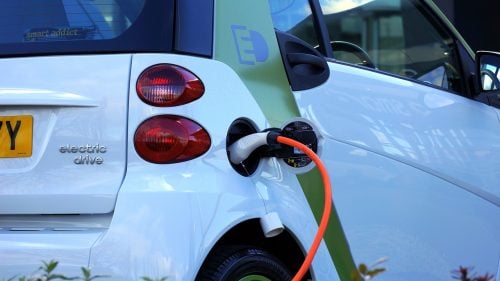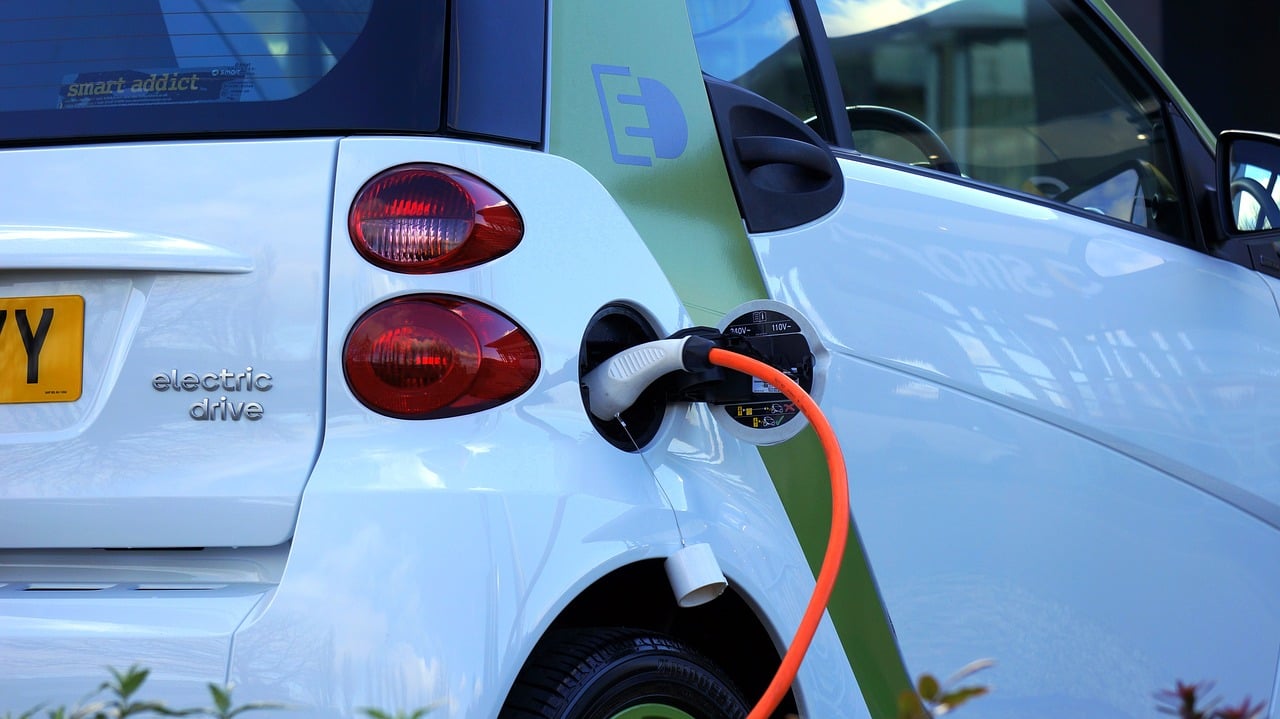Oil companies are seriously underestimating global progress in low-carbon transition. If they continue to assume demand for oil will grow unabated they will likely find themselves with fossil fuel assets they cannot use.
So concludes a new report from the Grantham Institute at Imperial College London and the Carbon Tracker Initiative think tank.
 Electric vehicles could account for over a third of road transport by 2035 says the new report.
Electric vehicles could account for over a third of road transport by 2035 says the new report.
Image: pixabay-1458836
James Leaton, head of research at Carbon Tracker, says:
“There is no more business as usual in the energy sector – so it is time that scenario was discarded. There are a number of low-carbon technologies about to achieve critical mass decades before some companies expect.”
Global demand for oil and coal will stop growing from 2020
The report predicts that global demand for oil and coal will stop growing from 2020 as costs of electric vehicles and solar technology tumble.
The authors describe the two technologies as “game-changers” that will have a major effect on fossil fuel consumption, half of which is currently taken up by the road transport and power generation sectors.
Their analysis brings together up-to-date market trends and costs of solar and electric vehicle technology, plus climate change efforts by countries in line with their Nationally Determined Contributions under the Paris Agreement.
These inputs “reflect the current state of the low-carbon transition” note the authors.
Electric vehicles could account for 35 percent of road transport by 2035
The growth in electric vehicles alone could displace 2 million barrels of oil per day by 2025 – about the same volume as the oversupply that led to the collapse of oil prices in 2014-2015.
By 2040, the displacement could be 16 million barrels per day, and by 2050, 25 million. This contrasts sharply with the oil industry’s expectation that demand for oil will continue to grow.
BP’s 2017 energy outlook predicts electric vehicles will account for only 6 percent of the road transport market in 2035 – but the report suggests it will be 35 percent, rising to more than two-thirds by 2050.
Further innovations could speed up the low-carbon transition process even further and make these scenarios look rather conservative, say the authors.
Solar power could supply 23 percent of global power by 2040
The cost of capturing solar energy has fallen by 85 percent in the last 7 years as key components – such as photovoltaic (PV) panels and inverters – have become cheaper and more efficient.
Even taking into associated energy storage costs, the report says solar could supply 23 percent of global power generation in 2040, rising to 29 percent by 2050. This could phase out coal completely and leave natural gas with just 1 percent of market share.
Again, the authors contrast this with the oil industry’s prediction – for example, ExxonMobil sees only 11 percent of global power generation in 2040 as coming from renewables.
“In such a scenario of rapid change, the mass stranding of downstream fossil fuel assets is highly likely,” they conclude.

